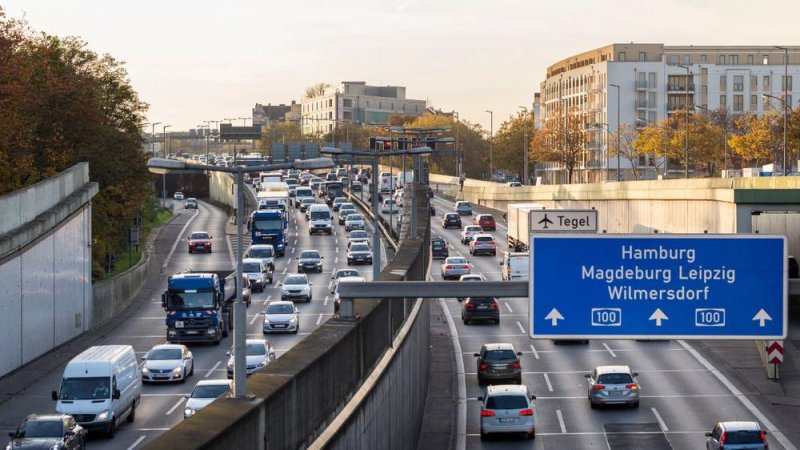The Ringbahn Bridge on the A100 highway in western Berlin has been completely closed to northbound traffic since Wednesday evening.
The decision was made by Autobahn GmbH, the company responsible for Germany’s highways, after structural analyses and expert assessments determined that the bridge was no longer safe for use.
The closure affects the northbound lane, in the area where A115 merges into A100. According to the company, temporary measures such as additional supports or partial closure would not provide the necessary level of safety. "We understand that this decision will cause significant congestion in Berlin, but there is no alternative from a safety perspective," said Ronald Normann, head of the company’s northeast division.
As a result of the closure, northbound traffic will be temporarily diverted to the opposite lane. However, at this time, the S-Bahn urban railway, which runs beneath the bridge, can continue to operate as usual. Additionally, the Westend Bridge, located just north of the Ringbahn and also part of the A100 highway, will also be closed as a precautionary measure until structural inspections are completed. The closure affects the section up to the Knobelsdorffstraße interchange.
Berlin’s Transport Senator, Ute Bonde, stated that authorities are actively working to find alternative routes, but due to the bridge’s central location, detour options are limited. She recommends that drivers take extensive alternative routes and consider switching to suburban and regional trains.
In early March, inspections revealed that an existing crack in one of the bridge’s load-bearing components had significantly widened. As a result, only one lane had remained open until now. The bridge, built in 1963, serves around 230,000 vehicles per day.
The closure of the Ringbahn Bridge on the A100 highway is expected to cause major traffic disruptions across Berlin. While public transport is not directly affected at this stage, the closure of the northbound lane could eventually impact the Ringbahn S-Bahn line, one of the most important train lines in the city.
A Key Transport Route Impacting Thousands of Commuters and Tourists
This bridge serves as a critical transport route, used daily by thousands of drivers, including travelers commuting from Berlin Brandenburg Airport to the western part of the city, tourists taking taxis, and participants in major international conferences such as the ITB travel fair.
Renovation work is expected to take approximately two years, which could lead to massive traffic congestion across the affected area.
Further updates will be provided as the situation develops.
